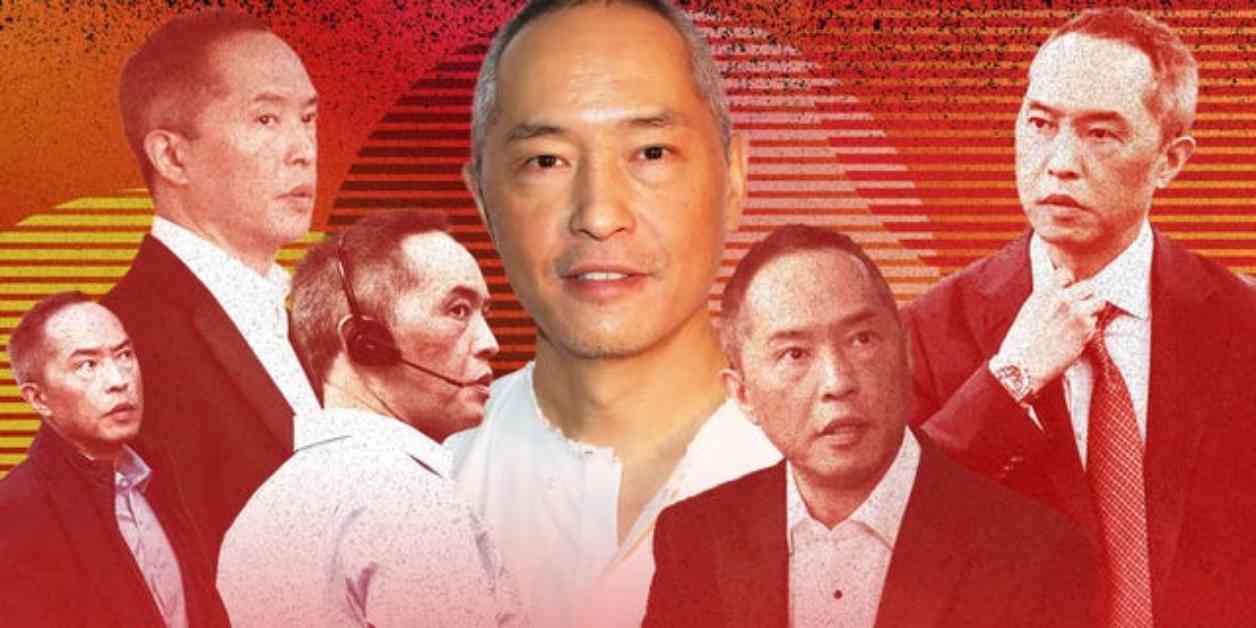The Complexity of Eric Tao’s Character in HBO’s Industry
Eric Tao’s journey on HBO’s Industry has been nothing short of tumultuous. As the show’s third season unfolds, we witness Eric grappling with personal and professional challenges that push him to his limits. From a divorce to the firing of his protege Harper, Eric’s life seems to be spiraling out of control. Despite a big promotion, he finds himself at the bottom of yet another ladder, unsure of how to climb back up to power. However, in the seventh episode of season 3, titled “Useful Idiot,” Eric’s fortunes take a dramatic turn.
As Pierpoint faces financial turmoil and the need for a capital injection becomes urgent, Eric is forced to make a pivotal decision. Caught between helping his friend Bill Adler or furthering his own career within the company, Eric realizes that chaos can be a ladder. In a strategic move, he leverages Adler’s brain tumor to oust him from Pierpoint, securing a place for himself in the bank’s new future. This moment marks a significant shift in Eric’s character and sets the stage for his redemption.
Kenneth Leung’s Stellar Performance as Eric Tao
One of the standout aspects of Industry is Kenneth Leung’s portrayal of Eric Tao. Throughout the series, Leung brings a depth and complexity to Eric that makes him one of the most compelling characters on the show. In “Useful Idiot,” Leung’s performance reaches new heights as he navigates Eric’s moral dilemmas and strategic maneuvers with precision and intensity.
Leung’s approach to portraying Eric is rooted in spontaneity and self-surprise. He deliberately avoids seeking too much information about his character’s arc, allowing himself to react authentically to each new development. This method of acting keeps Leung on his toes and enables him to embody Eric’s mindset with authenticity and nuance.
The chemistry between Leung and co-creators Mickey Down and Konrad Kay is evident in the seamless portrayal of Eric’s character evolution. As the two creators step into the director’s chair for the first time, Leung’s collaboration with them results in a dynamic and engaging performance that resonates with viewers.
Exploring Masculinity and Power Dynamics in Industry
Industry delves into complex themes of masculinity and power dynamics, offering a nuanced portrayal of how these factors shape the characters’ decisions and relationships. From Eric’s relentless pursuit of success to Diana’s astute observation about raising strong boys versus fixing broken men, the show interrogates the ways in which traditional notions of masculinity influence behavior and outcomes.
The show’s exploration of anger, vulnerability, and the pursuit of power highlights the precarious nature of masculine energy in a competitive corporate environment. Eric’s internal struggle between maintaining control and succumbing to vulnerability reflects a larger commentary on the dangers of prioritizing power at the expense of personal relationships and ethical considerations.
Through Eric’s interactions with colleagues like Robert and Diana, Industry challenges viewers to reconsider the implications of toxic masculinity and the impact it has on individuals’ lives. By showcasing the consequences of unchecked ambition and the costs of prioritizing career success over personal well-being, the show prompts reflection on the broader societal norms that perpetuate harmful behaviors.
In conclusion, Kenneth Leung’s portrayal of Eric Tao in HBO’s Industry exemplifies the complexity of human nature and the intricacies of navigating power dynamics in a high-stakes corporate world. Through Leung’s nuanced performance and the show’s exploration of masculinity and power, viewers are invited to reflect on the choices we make and the values we uphold in pursuit of success. As Eric’s character continues to evolve and confront his inner demons, we are reminded of the fragility of human relationships and the enduring impact of personal integrity in the face of adversity.


















